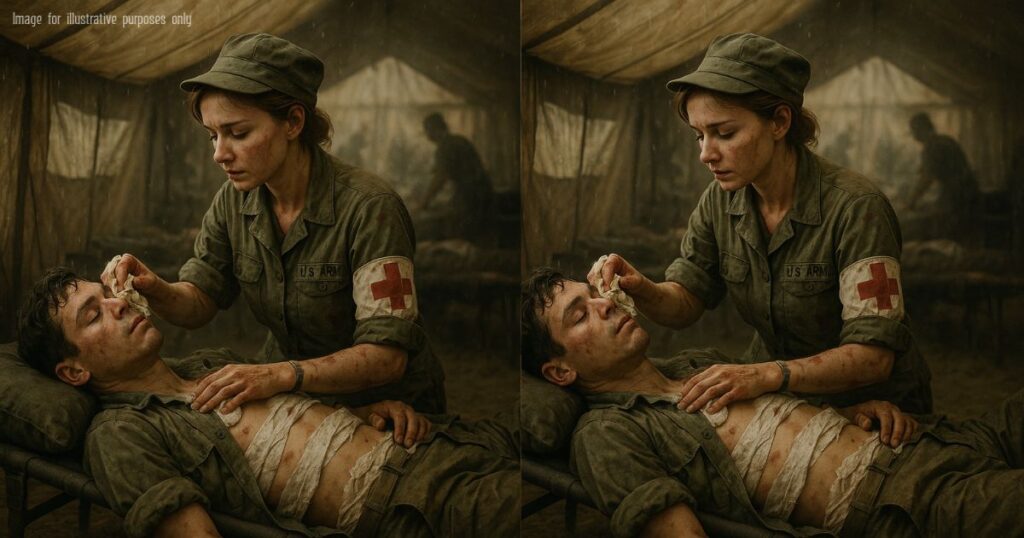The night before the assembly, I couldn’t sleep. I laid out my old Army Nurse Corps pin next to a blouse that didn’t quite button right anymore. The blazer I chose was one Jack gave me before his last VA appointment. Still smelled faintly of cedar, and sorrow.
I told myself I’d go just to listen. Just to sit quietly in the back and leave before anyone noticed. But something about that phrase kept ringing in my head: Your voice matters.
So I went.
East High was a newer building—glass and metal and strange echoing hallways. Not like the red brick schools I remembered. A student named Devon met me at the front door. He wore a tie that didn’t quite sit straight and called me “ma’am” every time he spoke. I liked him immediately.
They led me to the library. I sat on a metal chair under fluorescent lights, waiting while the class filed in. I thought: What could I possibly say that would matter to kids who were born after 9/11?
But then Mrs. Hartman smiled and nodded at me gently. “You can begin whenever you’re ready.”
I stood up, knees crackling like an old floorboard.
“I’m Carolyn West,” I said. “Army Nurse, Vietnam, 1968 to ’71. After that, 41 years in public hospitals. Most of the time, I was tired. All of the time, I cared.”
They were quiet. Some leaned forward. One girl had blue hair and a skeptical expression that reminded me of myself at twenty.
I told them about the boys we lost. The ones who begged us to save their legs. The ones who died holding our hands. I didn’t dramatize it—I just told the truth. I spoke about stitching wounds in tents with rain leaking through the seams, of washing blood off boots and pretending it was mud.
I told them about coming home and being called a baby killer.
I told them about nursing in Chicago in the ’80s, where mothers cried in Spanish and no one had insurance, and we tried anyway. Always tried.
I told them that now, I ration my insulin. That I have to choose between groceries and medicine. That I live in a country I once served, but no longer feel seen by.
And I told them that today—today was the first time in years someone asked to hear my voice.
When I finished, the silence stretched. Then someone clapped. Then another. And then the whole room stood up.
One boy in the back—baseball cap turned backward—walked up to me, his face blotchy and red. “My grandpa was in Nam. He never talked. But I think… I get it now.”
Another student, a girl in overalls, gave me a tight hug without asking. She smelled like peppermint and teenage nerves.
Before I left, Mrs. Hartman handed me a small envelope. “We all chipped in,” she said, her eyes glassy. “Just something to say thank you.”
Inside was a $100 gift card to the local grocery store, and a handwritten card signed by each student. One note read:
“You helped save lives. Let us help save yours.”
I walked out of that school into the cold Kansas wind with something I hadn’t carried in a long time: dignity.
Not much changed after that. I still count my pills. I still reuse tea bags. But now, once a week, I get a letter from a student. One sends poems. Another mailed me a drawing of a nurse with wings.
They remind me that maybe I wasn’t forgotten. Just waiting to be remembered.
Sometimes the medicine we need doesn’t come in vials.
Sometimes, it comes in the shape of a child who listens.
💬 If this story moved you, share it. Someone like Carolyn might be reading. And they deserve to know we still see them.


